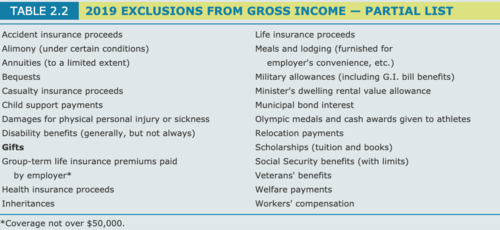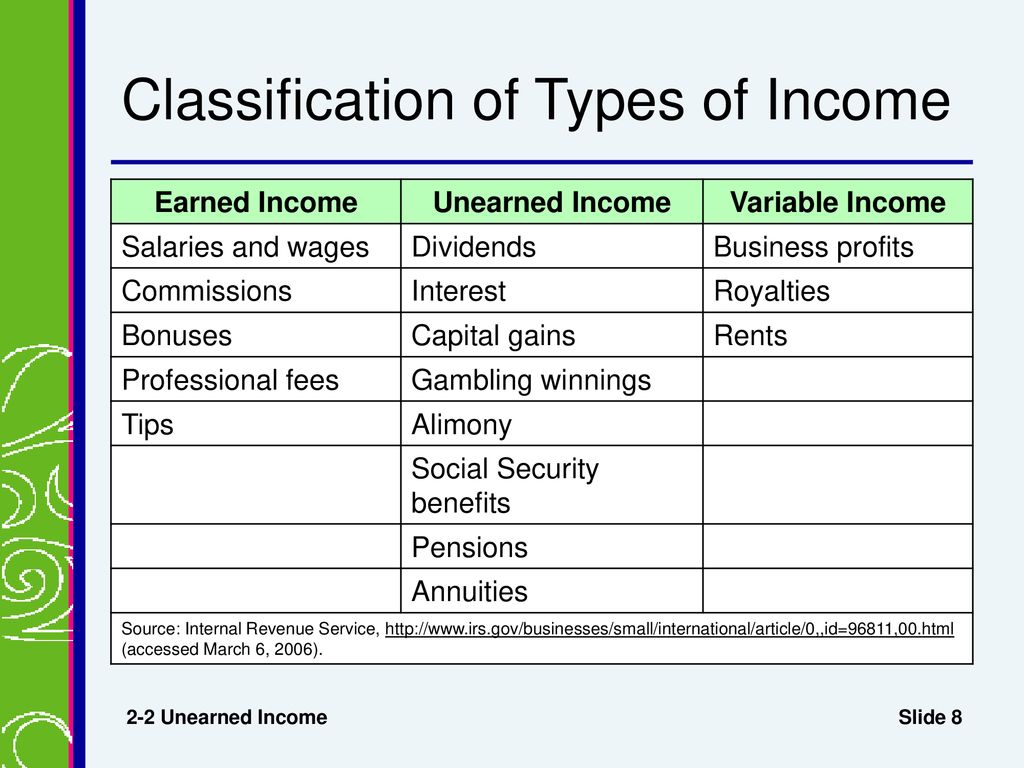Are Gambling Winnings Considered Earned Income For Social Security
- Are Gambling Winnings Considered Earned Income For Social Security Purposes
- Are Gambling Winnings Considered Earned Income For Social Security Recipients
- Are Gambling Winnings Considered Earned Income For Social Security Income
- Are Gambling Winnings Considered Earned Income For Social Security Taxable
You may already knowthat if you’re under full retirement age and file for Social Security benefits,there’s a limit to the amount of income you can make before your benefit isreduced — or shut off completely.
But there’s one bigquestion that keeps coming up when I talk to people about this topic: Whatcounts as income?
Today, let’s find theanswer. I’ll cover what the Social Security Administration considers income aswell as what doesn’t count on yourearnings test.
Before we get there,let’s go over a quick overview of how the earnings test for determining whetheror not you’re hitting the earnings or income limit works.
Gambling winnings would NOT affect the amount of social security benefits. If you are below full retirement age - your social security benefits MIGHT be reduced - but that is ONLY based on earned income - wages and social security. Gambling winnings are not earned income - and are not reported to the SSA. I know you can offset gambling winnings. Gambling winnings, lottery winnings and prizes are unearned income subject to the general rules pertaining to income and income exclusions. NOTE: We do not subtract gambling losses from gambling winnings in determining an individual's countable income. Choice Between Cash and In-Kind Item.
What You Needto Know About the Social Security Earnings Test and Income Limit
The first thing toknow is that, right now, the earnings limit only applies before your full retirement age. Once you reach your fullretirement age, you can earn a bazillion dollars and continue to receive yourfull Social Security benefit.
- However, if Social Security benefits are being paid as a benefit for a family member of the benefit owner, that income may be used in qualifying if the lender obtains documentation that confirms the remaining term is at least three years from the date of the mortgage application.
- $5000 or more from returns earned at poker tournaments. Returns that are subject of federal income tax withholding requirement. To do this, your Social Security Number and the Form W2-G reporting your returns to the IRS is needed. The rate of 25% is usually withheld from your returns as deductible tax.
Because fullretirement age differs based on your year of birth, we need to take a quicklook at the table so you’ll know exactly when your full retirement age is.
- If you were born between 1943 and 1954,your full retirement age is 66.
- For 1955, the age is 66 and 2 months.
- For 1956, it’s 66 and 4 months.
- For 1957 the age is 66 and 6 months.
- For 1958, full retirement age is 66 and8 months.
- For 1959, it’s 66 and 10 months.
- For those born in 1960 or later, thefull retirement age is set at age 67.
Obviously, thecurrent full retirement age if you were born after 1960 is subject to changewith the proposals floating around to fix Social Security — but this is wherewe are right now.
How theEarnings or Income Limit Relates to Your Full Retirement Age
If you make more than $17,640, the Social Security Administration will withhold $1 in benefits for every $2 in income that exceeds that amount.
The one exception isduring the calendar year you attain full retirement age. During that period,the earnings limit nearly triples and the withholding amount is not as steep.
For every $3 you earnover the income limit, Social Security will withhold $1 in benefits. At yourfull retirement age, there is no income limit.
The $17,640 amount isthe number for 2019, but the dollar amount of on the income limit will increase on an annual basis goingforward. You need to keep up with the year-to-year changes to stay informed.
(Want to make thisvery easy to do? Just subscribe to myYouTube channel,because we do an update for these numbers as soon as we see them!)
What Counts AsIncome to the Social Security Administration

Now that you have abasic understanding of the income limit, we need to look at what actuallycounts as income toward that limit.
Thankfully, theSocial Security administration makes it easy to understand for most types of income that you mightnormally receive. First, let’s look at the income that does not count.
Income that does not count toward the earnings limit includes:
- Pension payments
- Most annuity payments
- IRA and retirement accountdistributions
- Dividends
- Interest income
- Capital gains
As the law iscurrently written, you can receive an unlimited amount of income from thesources above and receive your full Social Security benefit.
The income that does count in the earnings limit isemployment income. That means grossemployment wages if you’re an employee and/or your net earnings fromself-employment.
Some IncomeSources Are Harder to Classify Than Others
This nice, conciselist will take care of 95% of all the types of income that exists. But thereare numerous other types of income that can cause confusion.
You might have back pay, bonuses, vacation pay, deferred comp, fiduciary fees, renewal commissions — the list goes on. Unfortunately, we can’t go through each of these in detail here because even the Social security administration’s page lists 88 different types of income!
To confuse it evenfurther, there are some types of income that’s not counted for employees, butit is counted for those who are self-employed.
You can take a look at that pageto learn moreabout how these different types of income are treated. Some of this income iscounted, some of this income is not counted — but before you get too stressedabout this, remember that 95% of income sources are easily classified with oursimple list above.
Ifyou are under full retirement age and receive income from a source that is notone of the common ones we discussed above, you’ll likely receive a letter fromthe SSA alleging an overpayment.
Ifyou do, DON’T IMMEDIATELY ASSUME YOU HAVE TO PAY THE AMOUNT BACK.
Youdo need to communicate with theSocial Security Administration about this notice, or they’ll turn you benefitoff — but just because you receive a letter saying that the earnings testshould’ve applied doesn’t mean they are right.
I’veseen multiple cases in which all a client had to do was write a letter ofexplanation because the mistake was on the SSA’s end.
Justbe aware that when it comes to the earnings test, the Social SecurityAdministration seems to use the same playbook as the IRS does when they have aquestion. Instead of sending you a letter to get clarification, they simplyassume they are right and tell send you a letter saying how much you owe inadditional taxes.
Forexample, if a client sells a stock and doesn’t include the cost basis, the IRSjust assumes the entire amount of the proceeds should be a capital gain. Youhave to go back to them and tell them how much of the proceeds were the costbasis and how much represented an actual gain.
TheSocial Security Administration will often do something similar when it comes tothe earnings test and payments or income you received. They’ll send you anoverpayment letter that says something along the lines of,
“Becauseyou received this payment you should not have received your benefit. Startingon X date, we are going to stop paying your monthly benefit until theoverpayment is recovered.”
Thenthe burden is on you to explain why the payment doesn’t count as income for theearnings test.
(Asa side note to this…I recommend watching my video on How To Fix Social Security Overpayment Notices. I explain the process to file appealsand how to explain your position using their rules. If you get one of theseletters, do some research to protect yourself!)
It’s Not JustIncome That Matters – It’s Timing, Too
Additionally, theSocial Security Administration will often want clarification on the timing of yourearnings. In some cases, you may have earned money while you were stillworking, but didn’t receive it until after you stopped working and filed forSocial Security.
Are Gambling Winnings Considered Earned Income For Social Security Purposes
Does that income still count? The answer is,it depends. The rules are slightly different for employees and forself-employed workers.
For previousemployees, the Administration’s article, How Work Affects Your Benefits, says if you work for wages, income counts when its earned, not when its paid.
Then it goes on tosay if you’re self-employed, income counts when you receive it, not when you earn it. But there’s a time qualifier onthe end of that sentence; it goes on to say that this is true “unless [theearings are] paid in a year after you become entitled to Social Security andearned before you became entitled.”
Effectively, thismeans that if the payment occurs in the taxable year after you file forbenefits, it will not count against the earnings limit as long as the work wasperformed before you filed forbenefits.
But even within theserules there are some types of payments that fall in the cracks and don’t lineup perfectly with these rules. Again, I want to strongly emphasize that if youreceive a notice from the SSA alleging that you earned more than the allowableamount, dive into the rules to make sure they are right.
I promise you…they are not always right.
Questions?
If you still have questions, you could leave a comment below, but what may be an even greater help is to join my FREE Facebook members group. It’s very active and has some really smart people who love to answer any questions you may have about Social Security. From time to time I’ll even drop in to add my thoughts, too.
One last thing, be sure to get your FREE copy of my Social Security Cheat Sheet. This is where I took the most important rules and things to know from the 100,000 page Social Security website and condensed it down to just ONE PAGE! Get your FREE copy here.
If you’re wanting to get into the nitty-gritty of the research, here are a few resources that may help.
My video: How To FixSocial Security Overpayment Notices
https://www.youtube.com/watch?v=MkYXVwMmx0w

Social SecurityHandbook Chapter on Wages – https://www.ssa.gov/OP_Home/handbook/handbook.13/handbook-toc13.html
SSApublication “How Work Affects Your Benefits”
Are Gambling Winnings Considered Earned Income For Social Security Recipients

SSA POMS RS 02505.240 Summaryof How Major Types of Remuneration Are Treated
https://secure.ssa.gov/apps10/poms.nsf/lnx/0302505240
SSA POMS RS 02505.005 How to Count Wages Under the Earnings Test (ET)https://secure.ssa.gov/apps10/poms.nsf/lnx/0302505005
SSA POMS RS 01402.000Wage Exclusions
https://secure.ssa.gov/apps10/poms.nsf/lnx/0301402000
SSA Publication “Special Payments AfterRetirement”
https://www.ssa.gov/pubs/EN-05-10063.pdf

SSA POMS RS02510.016 Treatment of Special Payments (SP)
https://secure.ssa.gov/apps10/poms.nsf/lnx/0302510016
Everyone likes to gamble, play the lottery or Bingo every once in a while. Even a recreational gambler, will come across that quirk in the tax law. What quirk you wonder? That glitch that can actually cause you to pay more for your health insurance if you have gambling winnings. Yes, even if the overall result from gambling for the year is actually a loss. How on earth can this be, you wonder?
Obamacare and the Tax Laws About Gambling
Well, you know how tangled a web our tax laws are. You should note that adding Obamacare into the equation creates some interesting fallout, such as this oddity.
Are Gambling Winnings Considered Earned Income For Social Security Income
To understand how this happens, you have to understand how gambling winnings and losses are put on your tax return. Gambling proceeds and losses are generally not a net item on the tax return. Therefore, the total gambling winnings are part of your AGI for the year. Your losses are taken as an itemized deduction and limited to an amount not to exceed your reported winnings.
Reporting Gambling Winnings

So, whether or not you itemize your deductions and deduct your gambling losses, the full amount of the gambling winnings is part of AGI. And, your AGI is included in your household income, which is used to determine the amount of premium tax credit (PTC) to which you are entitled. PTC is the subsidy the government provides to help pay for your insurance when you purchase it through the government insurance Marketplace. The higher your income, the lower your Premium Tax Credit, and the lower the PTC, the higher your insurance premiums.
How You Gamble Matters Too!
Did your gambling winnings exceed certain thresholds based on the type of gambling you did and the amount you won? Did you win or lose at the casino, poker palace or racetrack? Well, that establishment is required to send you and the IRS a Form W-2G that shows the winnings. You can be sure the IRS will be aware of your gambling income. Even if your losses for the year exceed your winnings, or should you not receive a W-2G form, the IRS expects you to report your winnings. The burden is yours to report it. This will increase your AGI and, likely, your Marketplace-purchased insurance premiums also.
Are Gambling Winnings Considered Earned Income For Social Security Taxable
What if I win money on a Game Show?
The same requirement applies if you win on a game show. The winnings are included in your Adjusted Gross Income. Let’s say, you give the goods you won to charity. You deduct the contribution as an itemized deduction, your gross income will include the entire winnings.
How Does Gambling Affect My Medicare Premium?
This impacts very few individuals. However, those who are retired and on Medicare, are in the same boat. That being gambling can increase the cost of Medicare Part B and D premiums. An individual’s Medicare B and D premiums are based on the person’s AGI from two years prior. Thus, if you hit it big a couple of years back, you could see a rise in two of your monthly Medicare B premiums. Those being the Medicare B and a supplement for the Medicare D premiums (prescription drug coverage).
What If I Have a Low Income? Does it Help My Insurance Premiums?
Typically, the Medicare premium increase generally impacts higher-income peoples who can deal more easily with the increased costs. Do you have any questions about the lottery and how it, or other winnings and losses may affect your tax return and medical insurance costs? Feel free to give Alex Franch, BS EA at 781.849.7200 for assistance in planning your real-estate transactions. Worthtax has locations in Quincy, Weymouth and Dedham.